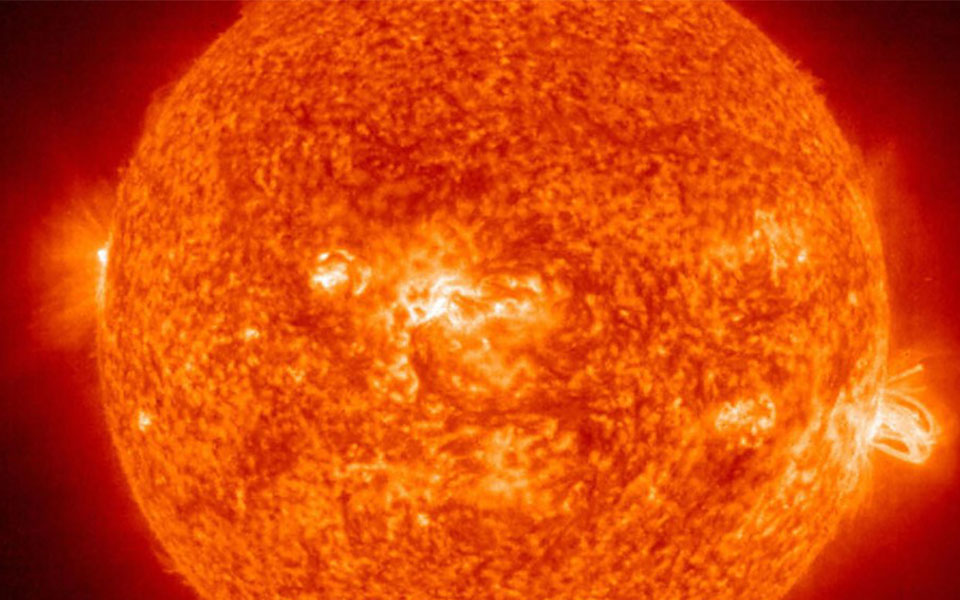Bengaluru, April 28: The energy provided by sunlight in an hour is equivalent to mankind's total energy consumption for one year, but the development of devices to turn this abundant natural gift into a feasible energy source for mankind had remained a challenge.
A new research, led by Govinder Singh Pawar -- an Indian origin scientist at the University of Exeter in the UK -- has given a ray of hope for the solar fuel.
According to the report, published in the journal Scientific Reports, the team of researchers developed an innovative method to split water into its constituent parts - Hydrogen and Oxygen - using sunlight.
The hydrogen can then be used as a fuel, with the potential to power everyday items such as homes and vehicles.
Hydrogen is considered to be a promising alternative fuel source that is clean -- its only by-product is water -- and is capable of replacing fossil fuels.
"The Hydrogen fuel that can be created through this synthetic photosynthesis method would not only severely reduce carbon emissions, but would also create a virtually limitless energy source," the university said in a statement.
"Photo electro-chemical" water splitting, emulating the natural photosynthesis using man-made materials, has long been considered as the Holy Grail to a carbon-free hydrogen economy.
However, efforts to produce efficient stable semiconductor material, in order to effectively convert sunlight to a storable widespread energy source, had so far proved elusive.
The ground-breaking new research by Pawar and co-workers at University's Environment and Sustainability Institute centres on the use of a revolutionary photo-electrode - made from nanoparticles of the elements lanthanum(La), iron(Fe) and oxygen(O).
Here, the team utilised Lanthanum iron oxide (LaFeO3) to create a semiconducting material that gave the ideal results for the production of Hydrogen from water using sunlight, making it the strongest candidate yet for renewable Hydrogen generation.
The researchers believe their novel photo-electrode made using "scalable spray pyrolysis method" is not only cheap to produce, but can also be recreated on a larger scale for mass and worldwide use.
"To the best of our knowledge, we report for the first time the nanostructured LaFeO3 photoelectrode for spontaneous Hydrogen evolution from water without any external applied bias," the researchers said.
"Moreover, our material has excellent stability where, after 21 hours of testing, it does not degrade, ideal for water splitting purpose."
The university in its statement said that Pawar and his colleagues "are currently working on further improving our material to make it more efficient to produce Hydrogen".
Let the Truth be known. If you read VB and like VB, please be a VB Supporter and Help us deliver the Truth to one and all.
Kalaburagi: Four men have been arrested in Kalaburagi on charge of hacking a man with lethal weapons and pelting stones at him under the limits of Station Bazaar Police Station recently.
According to police sources, Anand Jalak Shinde (34), Ashitosh Jalak Shinde (30), Imran Mehboob Sheikh (28) and Sohaib Anwar Qureshi have been arrested. The men are accused of the brutal murder of Syed Mehboob, a resident of Station Bazaar Upper Line Hamalawadi in the city.
An FIR was filed by the Station Bazaar Police Station based on a complaint given by Syed Ismail, father of the deceased Syed Mehboob.
Following quick probe, the police team successfully arrested the suspects within 24 hours. The arrested men were produced in court and have been sent to judicial custody.
The City Police Commissionerate has appreciated in an official release the police team’s quick solving of the murder case and arrest of the four men accused of murdering Syed Mehboob.





